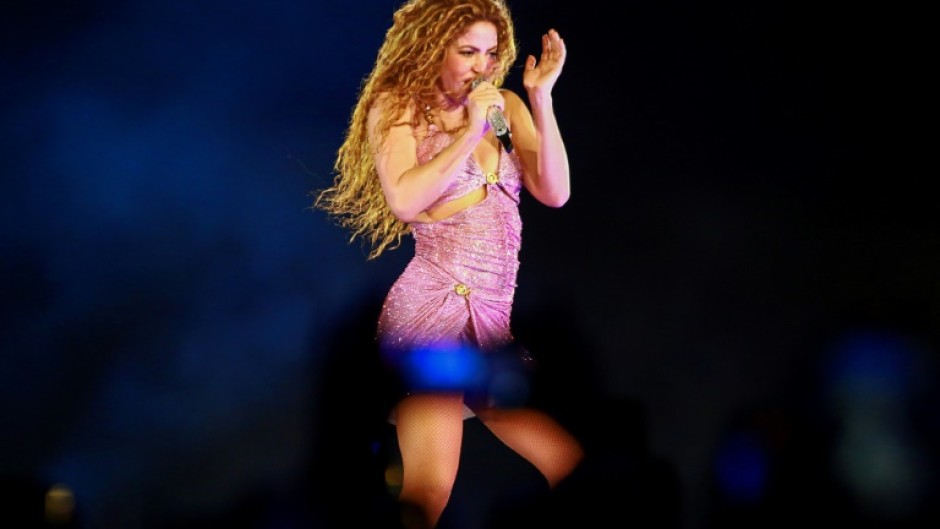
Shakira has canceled a concert in Colombia, among dozens of dates on her world tour, due to a damaged stage roof that posed safety concerns, event organizers said on Friday.
The Colombian singer-songwriter is on her first world tour in seven years, with nearly 50 performances scheduled in Latin America through June, followed by more concerts in the United States and Canada.
"During the process of setting up the show scheduled for February 24, the stage roof installed by a local production company suffered damage that put the artist's safety at risk," event organizer Paramo Presenta wrote on social media on Friday.
The company added that it hoped to reschedule the concert, which was due to take place at the Atanasio Girardot Stadium in Medellin.
The 48-year-old four-time Grammy winner had already been forced to scrap a tour date in Peru after she received treatment in hospital last week for an abdominal condition.
Titled "Las mujeres ya no lloran" (Women Don't Cry Anymore), the tour kicked off in Rio de Janeiro this month just a few days after she received a Grammy for best Latin pop album.
She returned to her hometown of Barranquilla, where she was welcomed on Thursday by tens of thousands of fans at the Metropolitano stadium.
With more than 90 million records sold worldwide, Shakira is one of the most popular Latin artists of all time.She has back-to-back concerts scheduled in Bogota on Wednesday and Thursday, according to her website. Shakira cancels Colombia concert over venue safety concerns
